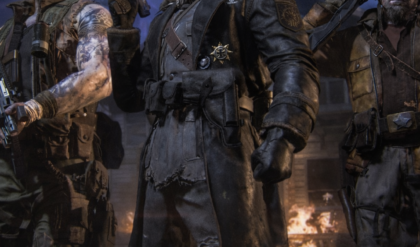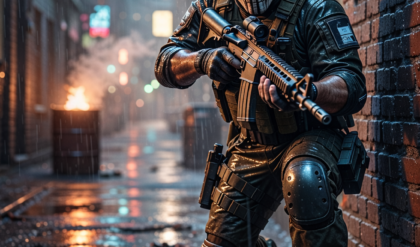Lashana Lynch brings a fresh and powerful presence to the screen as MI6 agent Bianca Pullman in The Day of the Jackal, a role she describes as deeply personal and groundbreaking in terms of representation. The actress, known for her performances in No Time to Die and The Woman King, shares her insights on portraying Bianca, her character’s journey, and the significance of Black representation in film and television.
A Character Beyond the Stereotype
Bianca Pullman is not your typical MI6 agent. Lynch describes her as a boss inside, a woman who is unorthodox, determined, and grappling with personal and professional challenges. Throughout the series, viewers witness Bianca struggle with herself, her truth, and her deep-seated passion for her work. Lynch emphasizes that she wanted Bianca to be more than just an archetype—she wanted her to feel real and relatable.
“Bianca is just so cool, but not in a way that she’s too cool for school. She’s a real, fleshed-out human being.”
Authenticity in Appearance
One of the most notable aspects of Lynch’s portrayal of Bianca is her attention to detail in terms of hair, wardrobe, and overall aesthetic. She was adamant about ensuring that Bianca’s look was both authentic and significant, particularly for Black audiences.
“When I got the script, the first thing that came to mind was good skin and locks. I wanted there to be this unrecognizable aesthetic to non-Black audiences but very recognizable to the Black community.”
Lynch personally selected Morris Roots, her wig designer from One Love, to create Bianca’s signature sister locks wig. She describes the moment of transformation when she put on the wig as instantly stepping into character.
“Locks, for me, is heaven. It carries a level of deep spirituality.”
Wardrobe and Representation
Working closely with costume designer Natalie Humphries, Lynch ensured that Bianca’s wardrobe reflected her background and personality. As a West London girl herself, she wanted Bianca’s clothing to balance practicality with a subtle, effortless style. Bianca’s fashion includes a mix of streetwear and smart tailoring, creating a look that is both professional and culturally resonant.
“This is a London woman to me. She doesn’t care too much about fashion, but she’s always going to look good.”
Lynch also made a point to include headscarves in Bianca’s nighttime routine, recognizing the importance of normalizing Black hair care on screen.
“Black women on screen need to be able to show their full nighttime routine that is slightly different to everybody else’s.”
The Physicality of the Role
Lynch underwent intense training to bring authenticity to her action sequences. Despite her previous experience with stunts and weapons training, she found the preparation for The Day of the Jackal to be on another level. Military consultant Paul Bidiss provided rigorous training, which included real-world surveillance exercises. Both Lynch and co-star Eddie Redmayne were tasked with tracking down a designated person in Covent Garden, mimicking real MI6 field training.
“I didn’t feel like I was ever putting on armor and taking up weapons that didn’t feel like an extended part of myself.”
Taking a Leadership Role Behind the Scenes
Beyond acting, Lynch took on the role of co-executive producer, ensuring that diversity and representation were integral to the production. She championed conversations about hair, skin, lighting, and body image, recognizing that these details are essential for true representation.
“There’s hair conversations, there’s skin conversations, there’s lighting conversations, wig conversations… It’s about continuity, about upkeeping a look that Black women and the Black community will recognize.”
Her leadership extended beyond herself—she took on the responsibility of making sure that younger Black actors on set, including the actress playing her daughter, felt represented and seen.
“We have a responsibility to make sure that young Black girls see themselves on screen in a way that is real and recognizable.”
A Role That Matters
For Lynch, playing Bianca Pullman was more than just another acting role. It was an opportunity to redefine representation in the spy thriller genre and to ensure that Black culture was authentically portrayed. She hopes that her work on The Day of the Jackal paves the way for more nuanced and meaningful representation in the industry.
“I’m so glad to be a part of this, and I’m grateful to pass this on to the next Black woman who will also be in my position.”





